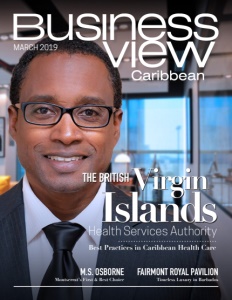At a press conference at the conclusion of the heads of government meeting in St. Kitts last month, the Caribbean Community (CARICOM) Chairman, Dr. Timothy Harris, Prime Minister of St. Kitts and Nevis, said that, in order to boost and facilitate the free movement of goods and people, transportation had to be affordable. The Chairman pointed to the fact that the transportation sector was evolving, that there were periods of restructuring and adjustment of regional air carriers, and that there was no “magic bullet”.
“We discussed the possibilities and various options going forward, vis-à-vis private sector engagement, as against governmental and public sector engagement in the transportation sector. We are committed, by and large, to deliver a competitive transportation industry to the region and to ensure that in order to boost and facilitate the CSME (Caribbean Single Market and Economy), the free movement of people and goods, that the transportation would be affordable,” Harris said.
“We have to be careful that our expectations are reasonable. It is well known that, for a very long-time, air transportation within the Caribbean region has had its share of problems. And we have had different airlines – whether it’s LIAT, BWIA or other airlines – they’ve gone through their own periods of restructuring and adjustment.”
“There is, within the region, a strong commitment to finding an affordable and efficient means of transportation that supports our integration efforts and that continues to be a work in progress because some of the issues that impact upon the outcome, they are very deep, they are very structural, and they require a thoughtful approach,” Harris said in response to a question on LIAT airlines.
Acknowledging the importance of LIAT and other regional airlines to the community, Harris said that the shareholder governments had provided an update on the airline “and there is a lot of solidarity to ensuring that we can achieve a sustainable model that would make LIAT – or any other entity, for that matter – or put them in a better position to provide the kinds of services that our people reasonably expect and ought to have with respect to air travel, and the same arguments go with respect to the ferry service.”
“We are now looking at some considerations as to what is the best model. And it is not just a question in these cases of buying a ship; in the end how will they sustain themselves? So, you have to address all the logistics and other issues pertinent to finding the model that would be self-financing or, at the very least, would not create a fiscal problem for those who are going to be contributing to them,” he said.



 This information will never be shared to third parties
This information will never be shared to third parties